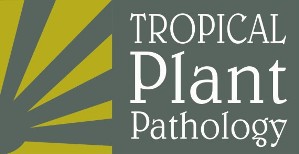Melon and watermelon bacterial fruit blotch, incited by Acidovorax citrulli, is limited to some areas in Brazil but causes important losses, mainly in melon-producing regions. Although genetic diversity has been observed among strains belonging to the species, they are considered a homogeneous group based on the fact that they show only slight physiological or nutritional differences. The objective of this study was to compare Brazilian strains from melon and watermelon by means of biochemical, pathogenicity, serological and molecular assays. Fifteen biochemical tests, cross inoculation between strains and hosts, ELISA and repetitive sequence analysis (rep-PCR) with the primers REP, ERIC and BOX were conducted. No differences were revealed by nutritional characterization or serology, but cross inoculation showed different pathogenicity groups, which could explain high aggressiveness of the bacteria to melon crops in some regions. Molecular analysis by BOX-PCR clustered strains according to their geographical origin, while ERIC- and REP-PCR, analyzed together, indicated genetic diversity, but without geographical or host origin relationships. One test that could be used to verify the pathogenicity of strains by inoculating detached leaf petioles, showing results in 36 h, is proposed here.
Citrullus lanatus; Cucumis melo; bacterial fruit blotch; DAS-ELISA; pathogenicity test; rep-PCR






